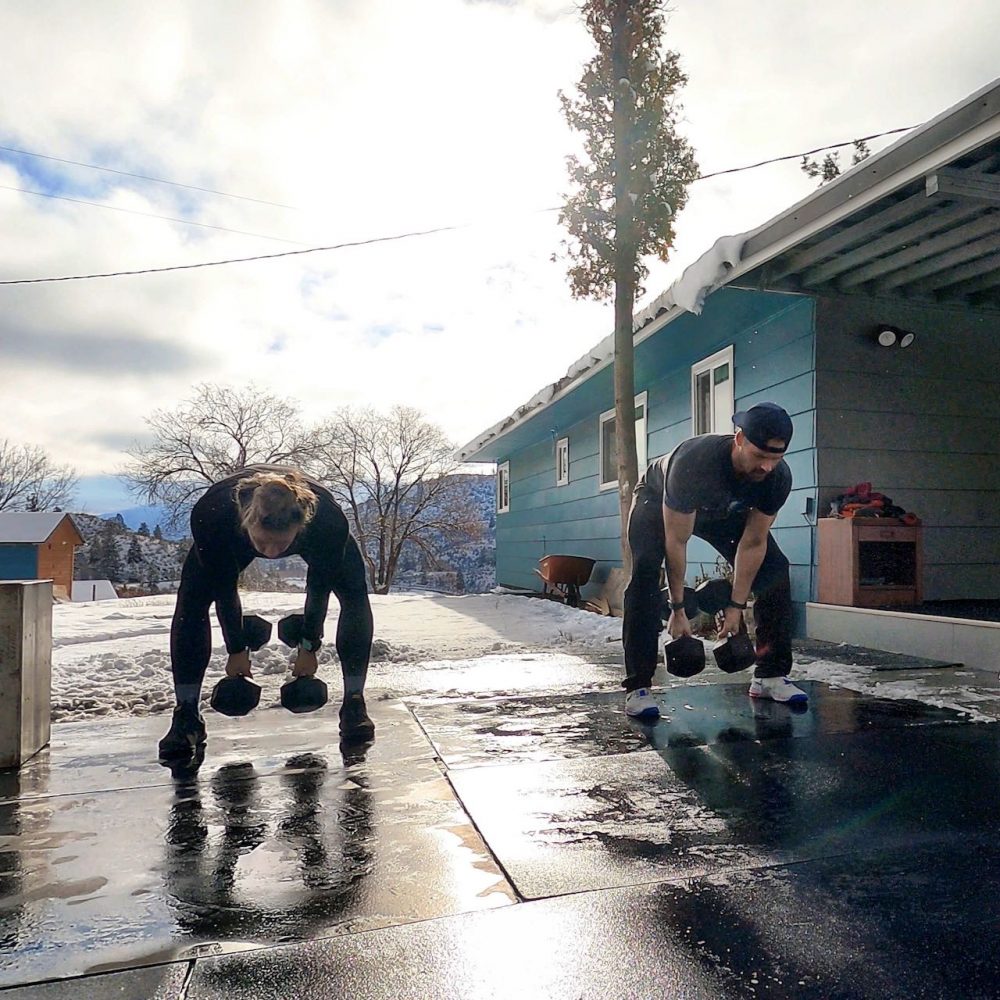
Prioritizing your fitness comes with several benefits for your health and well-being, but for some reason many fitness goes make these simple fitness mistakes. Fitness will energize you while keeping you in looking good and protect you from severe health conditions.
Research shows that adults below the age of 65 should have at least 150 minutes of exercise every week. BUT, many people make fitness mistakes while trying to get fit. As a result, their efforts don’t yield the results they desire.
Here are 8 fitness mistakes to avoid on your fitness journey. Avoiding these will make you more effective and minimize your risk of injury.
1. Skipping the warm-up
Warm-ups are essential to protecting (read heating up) your muscles while you exercise and preparing them for any kind of workout.
The warm-up helps build increase your heart rate, and heat up your tissues before you pick up the pace. Therefore, you shouldn’t skip warming up before you exercise, EVER. Even a few minutes of warming-up and active stretches will go a long way in improving the quality of your workouts.
You might also consider taking a pre-workout supplement 30-45 minutes before you exercise to boost your mental energy. Researching the best pre workout will help you settle on a good choice as there are countless options.
2. Eating the wrong foods
For your workouts to be effective and yield your desired results, you need to combine them with other lifestyle choices, such as a quality diet.
Poor nutrition will lead to poor results when trying to achieve your fitness goals, and present potential issues such as excessive weight gain and low energy levels.
Your diet makes up 80% of your results (weight loss, muscle gain, performance, etc.) while exercise makes up 20%. BUT YOU CANNOT HAVE THE RESULTS YOU WANT WITHOUT THE EXERCISE!! Too often I hear uninformed people telling me that because diet is more important than exercise they will do just dieting. You need the exercise to stimulate the body to use the diet properly. We should be saying that it’s 50% diet and 50% exercise that gets maximum results.
Getting back to diet, it’s advisable to eat foods rich in high quality proteins and fats, and fibrous carbs (think plants), avoiding most sugars (unless you understand when they are beneficial for your muscles) and vegetable oils.
AND, you can eat well without breaking the bank. Buying nutritious foods in bulk will help you avoid impulse buying and the urge to snack.
Try to avoid following fad diets and work on your eating habits to improve your health, well-being, energy, how you look, etc… Drinking lots of water will also help keep you hydrated and flush out toxins from your system.
Probably the most beneficial thing you can do to learn about nutrition is to track what you eat on a regular bases (not all the time). This is something that will help you quickly learn what is in the foods you eat, and should have been a requirement for all school age kids growing up. We would have far less obese people if this were the case.
3. Waiting till you’re ready
There’s never a perfect time to start working out or eating healthily. This is a major fitness mistake that we hear al the time!
The most crucial step is to start, no matter how small. Taking action will help make your health and fitness goals a reality. Stop researching to find the best plan for you or waiting till you feel ready. Just pick one and start! You can always change the plan later.
4. Forgetting why you started
Your fitness journey will be full of ups and downs, and there will be days when you may feel like throwing in the towel. In such moments, remembering the goals you set for exercising in the first place will help you stay focused and keep you going.
You should write these goals down and stick them somewhere you can quickly see and remember them. This can give you the push you need to get moving.
Just remember, these goals should be realistic and not too vague. It would help if you also had one or two people who hold you accountable. They’ll give you the push you need and help keep you in check.
5. Not rest days
Pushing yourself too hard when working out can lead to burnout and overtraining. Yes, you do need to work really hard when you are working out, but you also need to balance recovery days with your workout days to get the best results.
There’s a difference between challenging yourself and trying to do more than your body can handle.
It’s better to take little steps than try to do everything at a go.
A vital part of your fitness journey is your recovery time. So it would help if you balanced exercising with getting enough rest. It’s essential to take some time off and give your body the time it needs to recuperate. Doing this will help you avoid injuries and prevent you from pushing your body beyond its limit.
6. Following every fitness trend
Fitness and diet trends come and go, but trying to follow everything will cause you not to achieve your fitness goals.
There’s a difference between following a trend and developing a lifestyle. Why not find what works for you and exercises you enjoy so that you can be more consistent? You can speak to a fitness expert or friend who gained tangible results from their workouts and diet to serve as a practical guide for you and give you a focused approach.
You can also master basic exercises to yield better results than trying several programs at once. Like squats, deadlifts, presses, running, biking, and gymnastics.
One of the biggest reasons people don’t get results in our program (The Get Better Project) is they have what we call “shiny object syndrome”. Rather than sticking with our program, they see another workout that looks fun and do that instead of what was programmed.
Yes, it’s better to do something then doing nothing. But so often the workouts they are skipping are the ones they need to do most. A good program gives you what you want and what you need. Skipping what you need because something else sounds fun will lead to stagnation and slow results.
7. Becoming obsessed with your weight / scale
Checking your weight helps you monitor one point of data on your fitness journey.
If you feel any kind of emotional reaction to the number that is on the scale… we recommend not weighing yourself. It’s a number that doesn’t matter at all. It’s just a data point, and if you feel it’s more that that… stop!
There’s so much more to your weight than just the figures on the scale.
You can identify other ways to track your progress and see if you’re getting any results. For instance, the mirror is a great tool, you can take a picture to see how you looked before and after, to help you identify the improvements you’ve made. Just make sure the picture is in the same place each time. You can also try on a few clothes that didn’t fit before.
8. Comparing yourself to others
Everyone’s fitness journey is different, and your goals may vary from others’.
Your body is also not the same as others and what works for them may not work for you. Therefore, comparing yourself to other people won’t achieve much for you and will rather make you feel underachieved.
Don’t allow what you see on social media to get to you or make you feel you aren’t making any efforts. Most of the time, you’ll probably see others’ results without the work they put in or how long it took them.
Focusing too much on that could affect your mental health and cause you to feel like giving up.
Instead of comparing yourself to others, why not celebrate your little victories and encourage yourself to keep going? The only comparison you need to make is with yourself by monitoring your progress and appreciating how far you’ve come.
Knowing which fitness mistakes to avoid will help you stay in good shape and make your fitness journey rewarding.

